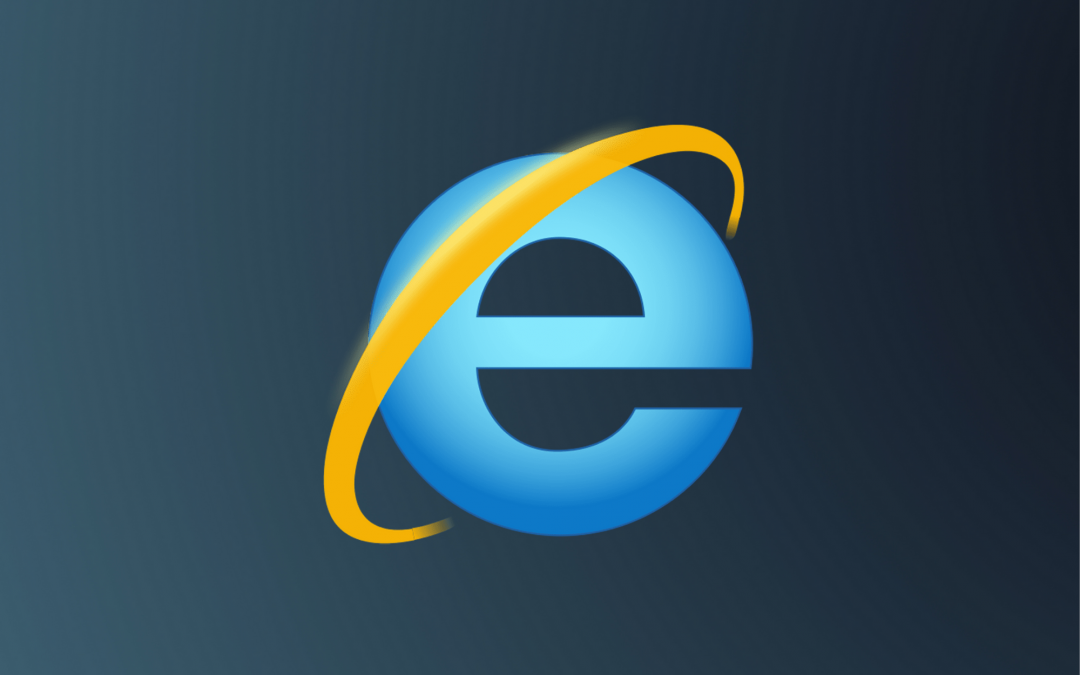After nearly 27 years, Internet Explorer—the once reigning web browser—was officially retired on June 15, 2022. While Internet Explorer (IE) has experienced a steady decrease in popularity in recent years, some still regard the “death” of the browser as the end of an era.
The first version of Internet Explorer was released in 1995. Initially introduced as an add-on package, IE soon became part of the Windows 95 operating system and was then pre-installed on every Windows PC. For many people at the time, Internet Explorer opened the door to web-browsing as we now know it. Regarded as the dominant web browser for many years, by 2003, IE had reached its peak market share of 95%!
However, its reign slowly but surely came to an end. As new—and vastly improved—web browsers (i.e., Mozilla Firefox, Google Chrome, etc.) entered the market, IE quickly lost favor with users for several reasons. IE was rarely updated, lacked important features, and often failed to meet international web standards. Eventually, Internet Explorer became primarily known for its bugs, lagging speed, and privacy issues. By 2010, its browser market share fell below 50% and, in 2022, sits at less than 1%.
Internet Explorer’s retirement should not come as a complete surprise. The browser’s last update was in 2013, and Microsoft began moving away from IE branding in 2015 with the release of Windows 15. For years now, Microsoft has been encouraging users to utilize Microsoft Edge instead, which they consider a faster, more secure, and more modern web browsing experience.
You may wonder what Internet Explorer’s retirement will mean for consumers. It turns out that not much will change. Over the next few months, Microsoft will roll out a prompt redirecting the few still using Internet Explorer to make the switch over to Microsoft Edge. Eventually, a future Windows update will permanently disable the defunct browser.
Though Internet Explorer may have experienced a severe fall from grace since its inception, there’s no denying how essential and influential the web browser once was. Its death signifies not only the end of an era but also the need for businesses to continually learn and adapt in order to succeed—and even survive—in today’s increasingly competitive marketplace.

